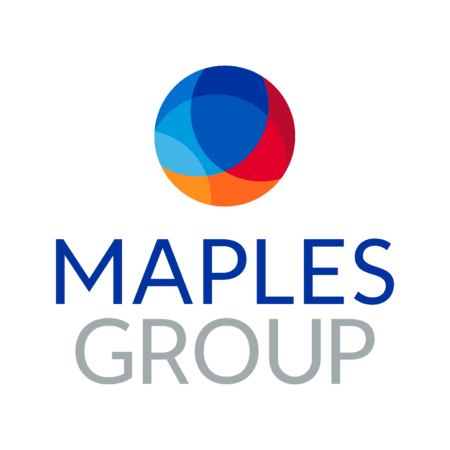Market Update
The use of special purpose acquisition companies (“SPACs”) as fundraising vehicles during 2020 and 2021 has been remarkable. Market sources confirm that the 231 US SPAC issuers that launched initial public offerings (“IPOs”) in the first quarter of 2021 surpassed the total number of blank cheque companies listed during the whole of 2020 (1) .
In Europe, the first half of 2021 has seen interest growing in the use of SPACs as mainstream vehicles for raising capital. Euronext Amsterdam, Deutsche Börse and the London Stock Exchange (“LSE”) expect listings to increase in the second half of 2021 but perhaps not at the same frenetic rate seen in the North American and Asian markets throughout 2020. Just over a handful of SPACs had listed on European stock exchanges by the end of the first half of 2021, with the Maples Group having advised approximately half of the issuers involved in those. Notably, at the time of writing, the Maples Group’s London law firm has acted as Cayman Islands legal counsel for all of the Cayman Islands SPACs which have listed on Euronext in the first half of 2021(2).
The SPAC structure was originally a US phenomenon. How successfully it can be replicated in European markets will depend not only on stock exchange listing rules but also on the flexibility of a jurisdiction’s corporate law in allowing typical SPAC features to be implemented. Cayman Islands, Jersey and Luxembourg companies are ideal candidates for use as SPAC-issuer and sponsor-related vehicles.
What is a SPAC?
A SPAC is a company that raises capital through an IPO with the intention of identifying and acquiring a target company, usually in a pre-determined sector, typically within 18 to 24 months.
The management team will have specific expertise and track record in the relevant sector, and will take on responsibility for identifying the target companies for acquisition. It follows that the investors are effectively placing their trust in the qualities of the management team rather than a traditional IPO, where incoming investors would need to engage in detailed due diligence in the target. This has resulted in SPACs being called ‘blank cheque’ vehicles.
SPAC investors will typically acquire a combination of shares and warrants (representing the right to acquire additional shares) in the SPAC. The management team or sponsor will hold a minority shareholder interest in the SPAC, typically around 20% of the equity, allowing them rights around board membership during the pre-acquisition period.
The securities of SPACs have been listed on NYSE, NASDAQ, Euronext Amsterdam and the LSE’s Main Market and AIM. The lack of trading history means that some listings are not available, such as a standard listing on the LSE. The International Stock Exchange (“TISE”) in the Channel Islands has introduced rules allowing the listing of SPACs, including a 36 month timeframe for an acquisition and a competitive and transparent fee regime.
SPAC Features
The structure will usually contain certain aspects, such as:
•A provision for the SPAC to complete an acquisition within 18 to 24 months, failing which capital will be returned to investors on a liquidation or winding up.
• Provisions detailing the corporate governance of the SPAC pre-acquisition, including how voting is weighted between the investor shares and the management shares, and how board and shareholder decisions are made. These would also need to reflect the requirements of the applicable listing rules.
• An obligation to get the approval of investors for a specific acquisition.
• A right for investors to redeem their shares and warrants to allow an exit from the SPAC.
• A requirement that the acquisition achieves a certain deal value and criteria.
• The process for ‘de-SPACing’ on an acquisition after which the SPAC effectively becomes an operating company or could instead merge with the target, effect a stock / share exchange, or other combination of steps. This process may involve the issuance of further shares or warrants, or bringing in third party lending.
• If an acquisition does not occur within the desired timeframe, the documentation will provide for an exit strategy to wind down or liquidate the SPAC with a return of capital to investors, for example, by way of redemption.
Importantly, the majority of the capital raised will be held in a trust account, segregated from the other assets of the company. These may only be released in pre-determined circumstances.
Cayman Islands, Jersey and Luxembourg SPACs
The Cayman Islands, Jersey and Luxembourg are ideal corporate law jurisdictions for establishing a SPAC issuer for reasons that include the following:
• Modern companies legislation, allowing par or no par value shares, and flexibility in respect of financial assistance, distributions, share issuance and redemption, and capital reduction. It also provides for merger or redomiciliation if that is to form part of the ‘de-SPACing’ process.
• Established and supportive regulatory regime.
• Network of experienced service providers and advisers.
• Easy access to TISE, and a history of companies being listed on the LSE, AIM, Euronext Amsterdam, NYSE and NASDAQ.
How can Maples Group help?
The Maples Group’s unique ability to provide British Virgin Islands, Cayman Islands, Jersey, Irish and Luxembourg legal advice through its international law firm, Maples and Calder, in addition to its capacity to provide accountancy, independent governance services to SPAC-related entities, director services and administrative services through its fund services and fiduciary business, has made the Maples Group the perfect choice for international businesses considering SPAC IPOs and business combinations in the US and Europe.
Through its fiduciary services business the Maples Group has extensive experience in delivering independent governance services to SPAC-related entities, providing experienced directors resident in various jurisdictions. Director services are provided throughout the SPAC lifecycle, from the SPAC sponsor at the start of a transaction, including where there are multiple sponsor parties pooling interests through a single vehicle, to other holding companies or flow-through entities involved in the set-up or ongoing administration of the SPAC, and finally through to entities involved in the ‘de-SPACing’, including for the approval of a business combination. Our experience spans various underlying sectors ranging from discretionary retail to transportation and infrastructure to technology.
In addition, the Maples Group is able to provide accounting services to meet requirements for financial statements and other financial information to be included in the SPAC’s prospectus as well as ongoing semi-annual financial statements and audit coordination for European listed SPACs.
1.Source: S&P Global Market Intelligence 29 March 2021.
2. https://maples.com/en/news/2021/8/maples-advises-on-all-cayman-islands-spacs-listed-on-euronext-in-h1-2021

